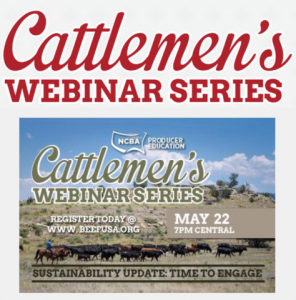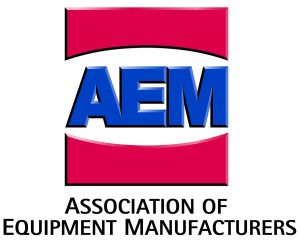 U.S. Secretary of Agriculture Sonny Perdue announced the appointment of 5 new members and 12 returning members to the National Advisory Committee on Meat and Poultry Inspection.
U.S. Secretary of Agriculture Sonny Perdue announced the appointment of 5 new members and 12 returning members to the National Advisory Committee on Meat and Poultry Inspection.- Sen. Chuck Grassley of Iowa joined a bipartisan group of senators, led by Democratic Sen. Tammy Baldwin of Wisconsin and Republican Sen. Pat Toomey of Pennsylvania, to urge U.S. Trade Representative Robert Lighthizer to ensure Mexico honors its existing trade commitments and rejects the EU’s unfair trade proposal that will harm American cheese exporters, processors and dairy farmers.
- Vermeer has created the next step in their processor evolution with the new BPX9010 bale processor. This all-around bale processor is designed for a variety of applications including distributing a consistent, uniform windrow in the pasture or bunk line and spreading bedding with consistency at ranges up to 50 ft.
- The American Dairy Association of the Midwest, Illinois Chapter and their constituency of 600 Illinois dairy farm families announced a partnership with the UpField Group to accelerate the adoption of renewable energy, specifically, solar energy usage on dairy farms.
- The U.S. Roundtable for Sustainable Beef, the Nation’s leading multi-stakeholder beef sustainability group, announced a new Board of Directors and Executive Officer group during the recent Fourth Annual General Assembly Meeting in Oklahoma City.
- The Innovation Center for U.S. Dairy, established under the leadership of dairy farmers, announced its seventh annual U.S. Dairy Sustainability Award winners during a May 16 ceremony at the Morton Arboretum in Lisle, Ill., outside of Chicago. The program recognizes dairy farms, businesses and partnerships whose practices improve the well-being of people, animals and the planet.
- The Office of the U.S. Trade Representative has agreed with a request from the National Pork Producers Council to review Thailand’s eligibility for the U.S. Generalized System of Preferences (GSP) program because of that country’s failure to provide access to its market for U.S. products, including pork.
- The 2018 USPOULTRY Human Resources Seminar addressed a variety of topics that are impacting human resources professionals in today’s environment. In addition to regulatory updates, recruitment and retention were also discussed at great length.
- Brookside Agra will feature its swine-specific products at World Pork Expo Booth #V808, June 6-8 in Des Moines, IA. For over 30 years, Brookside Agra has been a trusted source for safe, effective, all-natural feed additives and environmental, agricultural and animal health products.
Augusto Joins Ag Retailers Association
 Melisa Augusto has joined the staff of the Agricultural Retailers Association (ARA) as director of communications and marketing.
Melisa Augusto has joined the staff of the Agricultural Retailers Association (ARA) as director of communications and marketing.
In this capacity, Augusto will be responsible for ARA’s publications, media relations, website, marketing materials and associated issues. She will also support the communications aspects of ARA’s advocacy efforts on behalf of agricultural retailers.
“We’re excited to welcome Melisa to the ARA staff team,” said ARA President and CEO Daren Coppock. “She brings a combination of experience and energy that will be invaluable to our team and the members we serve.”
Augusto has more than twelve years of experience in agricultural communications, marketing and public relations. She joins ARA from National Association of Conservation Districts (NACD), where she served as director of development. She has also held positions at National Farmers Union, U.S. Grains Council and World Wide Sires, Ltd., in related fields.
She grew up on her family’s dairy farm in California’s Central Valley and holds a Bachelor of Science in Agricultural Business from California Polytechnic State University San Luis Obispo.
Farm Bill Defeated in the House
 House Agriculture Committee Chair Rep. Mike Conaway (R-TX) delivered on his promise to get a farm bill written in a timely manner, but his colleagues in the House voted 198-213 Friday to reject his effort.
House Agriculture Committee Chair Rep. Mike Conaway (R-TX) delivered on his promise to get a farm bill written in a timely manner, but his colleagues in the House voted 198-213 Friday to reject his effort.
Prior to the vote, Rep. Conaway expressed his frustration as a last minute amendment was introduced to recommit the bill with instructions to the Committee on Agriculture. “You can love the farm bill or you can hate the farm bill but it delivers the most effective, affordable and safest food and fiber supply of any developed nation in the world,” said Conaway.
Democrats voted against the bill mainly for changes to the Supplemental Nutrition Assistance Program (SNAP) aimed at getting able-bodied adults under 60 without dependents or disabilities back to work, but it was 30 conservative Republicans wanting a vote on immigration that killed the bill.
Listen to Rep. Conaway’s remarks here: House Ag Chair Rep. Conaway
Zimfo Bytes 5/18
 Bayer is looking for qualified writers capable of accurate production of very complex, often science-specific, facts in simple and understandable language for various target groups/communication activities in the German and English languages. Bayer is also looking for a cluster of excellent speechwriters to support Executive Communications for both internal and external audiences. Interested parties should fill out this form by May 18, 2018.
Bayer is looking for qualified writers capable of accurate production of very complex, often science-specific, facts in simple and understandable language for various target groups/communication activities in the German and English languages. Bayer is also looking for a cluster of excellent speechwriters to support Executive Communications for both internal and external audiences. Interested parties should fill out this form by May 18, 2018.- Booking space on the trade show floor at Commodity Classic will open to new exhibitors on Tuesday, May 15, 2018. The 2019 Commodity Classic will be held Thursday, February 28 through Saturday, March 2 in Orlando, Fla. Exhibit space is already limited. For exhibitor information, visit CommodityClassic.com, call 636.745.3008 or email: tradeshow@CommodityClassic.com.
- Seven students from the University of Nebraska-Lincoln are starting summer internship programs supported by the Nebraska Corn Board and Nebraska Corn Growers Association. Five of the seven summer interns will be based outside of the state and will work for major cooperators of Nebraska Corn. The remaining interns will work in Lincoln in the offices of the Nebraska Corn Board and Nebraska Corn Growers Association. They will also share their talents with the National Corn Growers Association.
- FMC announces that veteran Agricultural Solutions business and strategic accounts lead Bob West will head the company’s new Customer Engagement Center (CEC). The Center has been established to develop, foster and support customer interactions and growth of the FMC agricultural business.
- National Farmers Union President Roger Johnson wrote to U.S. Agriculture Secretary Sonny Perdue, urging the Secretary to proactively address the farmer suicide crisis. Farmers and ranchers commit suicide at a rate five times that of the general population. Farmers and ranchers who are coping with elevated levels of stress are encouraged to visit FarmCrisis.NFU.org to find resources that can help during tough times.
- The International Federation of Agricultural Journalists has named 10 outstanding agricultural journalists to participate in the 2018 IFAJ/Corteva AgriscienceTM Master Class. The 9th annual Master Class will be held in conjunction with IFAJ’s World Congress in Wageningen, The Netherlands, in early July.
- Lessing-Flynn and Vermeer Corporation were recently awarded a 2018 Bronze Anvil Award of Commendation by the Public Relations Society of America (PSRA) for their combined efforts in creating the Vermeer ZR5 self-propelled baler concept video.
- Georgia Governor Nathan Deal joined leaders from both Kubota Manufacturing of America and Kubota Industrial Equipment as they jointly announced a $1 million donation to the Lanier Technical College Foundation in support of its Technology and Industry Building on its new campus set to open in January 2019.
- The Agricultural Business Council of Kansas City honored two of the region’s leading agricultural figures on May 15. Lowell Mohler and Dr. Ken Odde both received the Council’s highest award, the Jay B. Dillingham Award for Agricultural Leadership and Excellence.
- Farmers Business Network has added industry veteran David Delaney to the company’s Board of Directors. Delaney most recently served as the EVP and Chief Operating Officer at PotashCorp (now Nutrien Ltd.), where he was responsible for operations across all of PotashCorp’’s business segments, including potash, nitrogen and phosphate.
ONE: The Alltech Ideas Conference 2018
 The transformative power of ideas is the focus of ONE: The Alltech Ideas Conference 2018, May 20–22, in Lexington, Kentucky
The transformative power of ideas is the focus of ONE: The Alltech Ideas Conference 2018, May 20–22, in Lexington, Kentucky
An idea, even in its root meaning, is “to see.” Da Vinci, Einstein, Edison, the Wright brothers, Tesla, Bell, Borlaug and Fleming — they had the ability to see what others could not. Because they opened their eyes to possibilities and thrived in pursuit of them, we have light. We have abundant food. We can even fly. Ideas change everything.
The annual Alltech symposium, which draws thousands of international visitors to Lexington each May, is the brain child of Irish entrepreneur and scientist Dr. Pearse Lyons, founder of Alltech, who passed away earlier this year. “This meeting is synonymous with Pearse Lyons,” says his son Dr. Mark Lyons, who is now president and chairman of Alltech. “All the way through, this program will be remembering him.”
The program includes former vice chair of General Electric Beth Comstock, USDA Under Secretary Bill Northey and groundbreaking neurologist Dr. Majid Fotuhi. Four thousand attendees from more than 70 countries are expected to attend this year’s 34th annual conference.
Learn more about ONE and this year’s program in this preview interview: Dr. Mark Lyons previews Alltech ONE 18
20th Southern Peanut Farmers Conference Set
 “Opportunities in Change” is the theme, Sandestin Resort is the place, and July 19-21 are the dates for the 20th Annual Southern Peanut Growers Conference.
“Opportunities in Change” is the theme, Sandestin Resort is the place, and July 19-21 are the dates for the 20th Annual Southern Peanut Growers Conference.
The three-day event provides farmers with information about peanut production, legislative issues, marketing and promotions. In addition, the event focuses on the family by offering a ladies program and a golf tournament, as well as a fun beach location on the beautiful Gulf Coast. The conference is hosted by the Southern Peanut Farmers Federation, which consists of peanut growers in Alabama, Florida, Georgia and Mississippi.
This year’s conference will focus on growth opportunities and changes within the peanut industry. General sessions on Friday will provide an update on promotional activities within the peanut industry, opportunities and challenges facing rural areas along with a question and answer session with a panel of researchers. During the luncheon on Friday, Donald J. Leo, dean of the University of Georgia College of Engineering, will be the keynote speaker.
The 2018 farm bill will be in the spotlight Saturday morning, with House Agriculture Committee member Rep. Neal Dunn (R-FL), and a question and answer session with Bob Redding, representative for the Southern Peanut Farmers Federation in Washington, D.C.
Registration is now open for the conference, July 19-21, at Sandestin Golf & Beach Resort, Miramar Beach, Florida. The registration fee for growers is $145 which includes all conference events and meals. The registration deadline is June 30. The registration fee increases by $50 on July 1. To register and view the conference schedule visit southernpeanutfarmers.org.
Once again, ZimmComm will be producing the SPGC conference blog, as we have done every year since 2008.
ZimmCast 584 – More NAMA, Farm Bill & Precision Ag
 There is a mix of topics in this week’s ZimmCast. In this week’s program you will hear:
There is a mix of topics in this week’s ZimmCast. In this week’s program you will hear:
- Interview with Marina Menendez, Distillery Madison
- Interview with Diane Riley/Brenda, Kondex
- Interview with Chuck Spencer, GROWMARK
- USDA story on Precision Ag Advancement
We have new members of the #GoldenMic Club, some discussion on sustainability as it relates to the Conservation Title of the Farm Bill and comments from ag equipment companies about the advancement of precision ag.
Want me to feature your podcast? Please let me know. Want to start one but don’t know how then let me help you. Call or write anytime.
Listen to the ZimmCast here: ZimmCast 584 - Farm Bill, NAMA Members & Precision Ag
I hope you enjoy it and thank you for listening.
Subscribe to the ZimmCast podcast here. Use this url in iTunes or your favorite news reader program/app.
Cattlemen’s Webinar Looks at Sustainability
 The next event in the National Cattlemen’s Beef Association Cattlemen’s Webinar Series will focus on sustainability. Specifically, the webinar will be an opportunity to learn from fellow cattlemen about the recently released Sustainability Framework.
The next event in the National Cattlemen’s Beef Association Cattlemen’s Webinar Series will focus on sustainability. Specifically, the webinar will be an opportunity to learn from fellow cattlemen about the recently released Sustainability Framework.
Produced through a U.S. Roundtable for Sustainable Beef working group process, the framework includes real world tools specific to farms, ranches and feedyards. Hear more about these resources and your opportunity to comment on how they could be improved. There will be Q&A with presenters at the end of the webinar.
The webinar is schedule for Tuesday, May 22 at 7 p.m. Central time. Register here.
Precision Ag Bytes 5/16
 CommoditAg launches CommoditAg LIVE, an enhanced ecommerce platform providing more benefits to growers and a superior customer experience. CommoditAg LIVE is an open access, transparent, and convenient ecommerce platform now with more features and benefits for the grower.
CommoditAg launches CommoditAg LIVE, an enhanced ecommerce platform providing more benefits to growers and a superior customer experience. CommoditAg LIVE is an open access, transparent, and convenient ecommerce platform now with more features and benefits for the grower.- National Corn Growers Association invites farmers to register early for NCGA’s National Corn Yield Contest and save big on entry fees. Until June 29, fees will be reduced to $75. To enter today using the online form, click here.
- Graduate and undergraduate students pursuing agriculture disciplines are invited to participate in the second annual Better Seed, Better Life student video contest sponsored by the American Seed Trade Association (ASTA), the National Association of Plant Breeders (NAPB), and the American Society of Agronomy, Crop Science Society of America and Soil Science Society of America (Tri-Societies). The 2018 contest theme is: “Rumor Has It.” Videos should help set the record straight on a common misconception or myth associated with the seed industry. Video submissions are due August 31, 2018.
- A new blog post from GMO Answers aims to help consumers understand what’s going on with food labels. Read Beyond the Label: 3 Truths & No Lies About GMOs here.
- The Soil Health Institute, in collaboration with the Soil Health Partnership and The Nature Conservancy, received a $9.4 million grant from the Foundation for Food and Agriculture Research to match a similar amount provided by other donors to advance soil health science and implement soil health management practices. Read the full release and see the complete list of indicators and methods here.
- Farmobile has announced the appointment of two distinguished agricultural leaders, Kip Pendleton and Joan K. Archer, to Farmobile’s team. Pendleton, president of the Pendleton Group in St. Paul, MN, will serve as an Outside Director on Farmobile’s Board of Directors. Archer, former partner at Husch and Blackwell, Kansas City, MO, now serves as the company’s General Counsel.
- Farmobile has announced that the U.S. District Court for the District of Nebraska has granted summary judgment for Farmobile in a lawsuit filed against it by Farmers Edge (FEI). The court dismissed all claims filed against Farmobile ranging from misappropriation of trade secrets to a request that a judgment be entered declaring FEI to be the owner of Farmobile’s Canadian patent and U.S. patent application.
- Farmers Edge released their position on the ruling made by the U.S. District Court for the District of Nebraska in the ongoing case with Farmobile. Farmers Edge believes there are grounds for appeal and will proceed with further action once the counterclaims have been dispensed with.
- FMC announces veteran Agricultural Solutions business and strategic accounts lead Bob West will head the company’s new Customer Engagement Center (CEC). The Center has been established to develop, foster and support customer interactions and growth of the FMC agricultural business.
Equipment Manufacturers See Strong April Sales
 The latest data from the Association of Equipment Manufacturers (AEM) shows strong U.S. sales of self-propelled combines and 4-wheel-drive tractors in April 2018.
The latest data from the Association of Equipment Manufacturers (AEM) shows strong U.S. sales of self-propelled combines and 4-wheel-drive tractors in April 2018.
“We saw that 2017 was better than 2016, and in 2018, growth is sluggish but still positive,” said Curt Blades, AEM senior vice president, AG services. “The downward trend in net farm income obviously is a concern since it is such a big factor in equipment sales. A bright spot, if you will, is the impact of continued replacement of aging machines; one downside is the continued threat of U.S. protectionism on farmers’ business as well as for equipment manufacturers. So, there’s still a lot of uncertainty with the year one-third over.”
U.S. sales of self-propelled combines jumped 59 percent over the previous month and 21 percent year-to-year. Tractor sales showed more modest gains.

